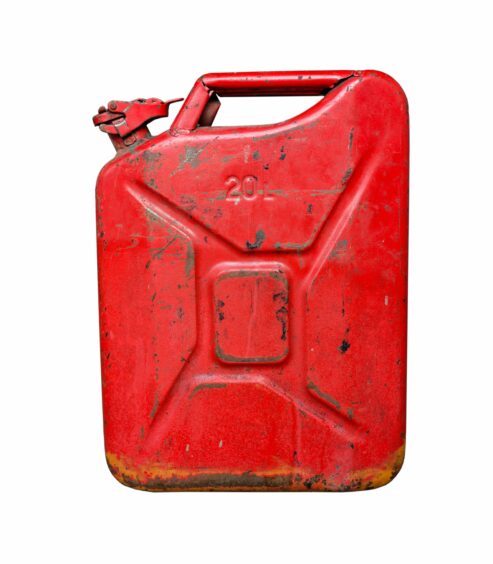Concerns surrounding “tax grab” implications of new UK legislation removing the construction sector’s use of cheaper red diesel could see house prices rise in the north and north-east as it is forced to pass on costs, says a Scottish trade body.
The fuel perk was axed on April 1, with a 16,000-strong construction petition calling for a delay falling on deaf ears at the UK Treasury, which maintains the move is in line with its goal to achieve carbon-neutral status by 2050.
Now, the Scottish Plant Owners Association (SPOA) is looking for a face-to-face meeting with tax chiefs to hammer out its grievances, with the trade association insisting the ending of red diesel use is of “zero” environmental benefit.
‘House prices are going to go up’
“The viability of construction projects is on the line,” SPOA president Callum Mackintosh told the Press and Journal. “Housebuilding is what keeps a lot of the country going. The bottom line is house prices are going to go up to the point where they are not affordable.”
“I want to make sure our members are compliant – the best way to do that is to bring the Revenue to one of our meetings or events.
“It is not confirmed, mostly because it looks to me like nobody in Revenue actually wants to do the job, but they know somebody has to.
War in Ukraine triggering huge rise in fuel prices
“Over the last few weeks and since the Russian invasion of Ukraine, the price of fuel has skyrocketed. We have come together as an industry to reason with the Chancellor to delay the removal of red diesel entitlement for the construction industry.”
The issue hinges on the building sector now being forced to use white or ordinary diesel, which has shot up in price, spurred largely by roiling instability from the rapidly escalating war in Ukraine.
Prior to April 1 those users of red diesel – used in off-road vehicles and machinery in most industries including construction, demolition, quarrying, mining and agriculture – were entitled to a rebate on the tax or duty paid on the fuel.
Illegal for construction sector to use red diesel
However, from April 1, it has become illegal for the construction sector to use red diesel.
Instead, the industry must use either white diesel, which will incur a five-fold increase in fuel duty, or so called ‘alternative fuels’ such as HVO Green D+, which can be made from animal fat, food industry waste or fish fat from processing waste or used cooking oil.
“What happens now in an ideal world is the government will pay attention to us and note what they have put in place is not delivering an environmental benefit,” added Mr Mackintosh.
“The only way to do that is to offer a rebate on sustainable, green fuels. Our industry fully supports decarbonisation and the net zero goal, but not when we are under so much cost pressure. We can’t afford to pay more.
“It is zero environmental benefit, absolutely none, it is a tax grab. Our costs are just being passed on. What we can’t calculate is the loss of business over the next 12 months.”
The SPOA has requested a meeting with HM Revenue and Customs (HMRC) at the Scotplant exhibition in Edinburgh on April 22 and 23 to press its members’ concerns triggered by the removal of red diesel entitlement from the construction industry.
Red diesel accounts for 14m tons of C02 every year – HMRC
Despite the construction sector’s anger, HMRC counters it has given businesses “a year to prepare” for the new system and points to its net-zero goals.
“Red diesel accounts for 15m tons of carbon dioxide emissions every year,” an HM Treasury spokesman said. “Our reforms will mean many organisations will instead need to use diesel taxed at the same rate as that used by ordinary motorists, helping us to move to net-zero by 2050.
“We gave businesses a year to prepare for this change and the farming and fishing industries are protected from these changes.
“But we recognise too there are unique circumstances currently pushing up fuel prices, which is why we cut fuel duty rates by 5p for the next 12 months.”
Refinery blockades yet another construction headache
Just one more problem to add to the construction industry’s woes, is that of disruption caused by environmental protestors blockading fuel refineries.
“We have gone from buying expensive diesel to now barely getting any expensive diesel at all,” added Mr Mackintosh.
The UK government notes it is “at least doubling” its investment in energy innovation by committing more than £1bn to the Net Zero Innovation Portfolio.
From that pot, London announced the £40m Red Diesel Replacement Competition, which will provide grant funding for projects that develop and demonstrate lower carbon, lower cost alternatives to red diesel for the construction, mining and quarrying sectors.



